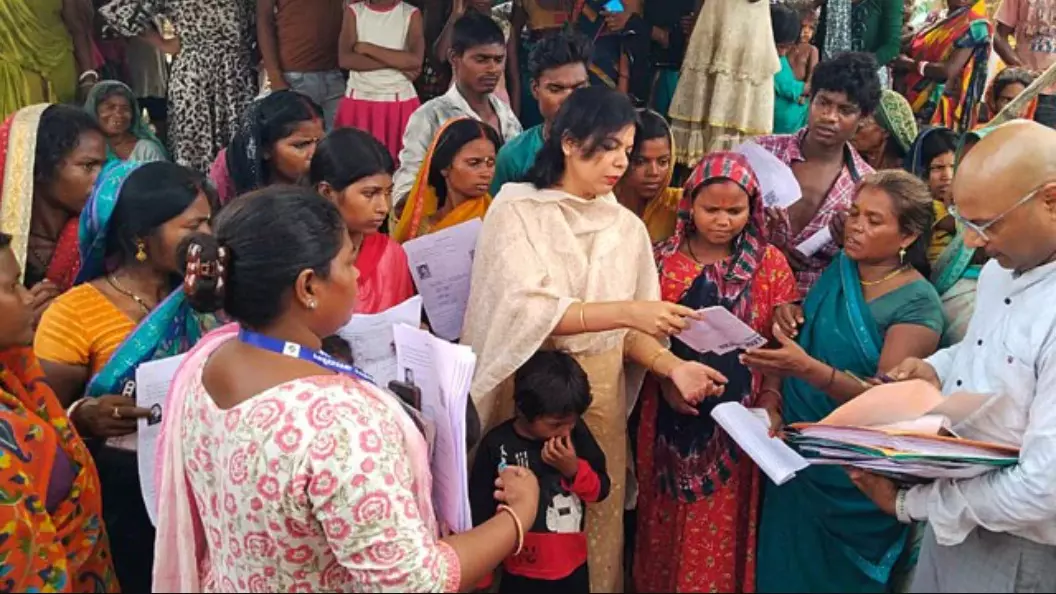Voter Rights Battle

The electoral roll is the bedrock of Indian democracy, the document that affirms every adult citizen’s right to participate in governance. Any attempt to revise this roll, especially close to an election, must be subjected to the strictest constitutional and democratic scrutiny. The Supreme Court’s decision to hear petitions on July 10 challenging the Election Commission’s (EC) special intensive revision (SIR) of electoral rolls in Bihar is, therefore, both necessary and timely. At the heart of the issue lies the EC’s June 24 directive initiating an intensive revision of Bihar’s electoral rolls, mere months before the state heads to polls in November. Several opposition leaders—cutting across parties including the Congress, Shiv Sena (UBT), RJD, TMC, NCP (Sharad Pawar), CPI, CPI (ML), Samajwadi Party and JMM—have approached the apex court, warning that the SIR is not just administratively unworkable but potentially discriminatory. They argue that the process, if left unchecked, could disenfranchise crores of voters, particularly those from marginalised and vulnerable communities. The Election Commission’s stated aim of ensuring accuracy in the rolls is laudable. However, the manner and timing of this revision raise serious constitutional questions. As per the petitions filed, the EC has demanded that nearly four crore voters in Bihar submit documentation to verify their eligibility—within an unreasonably short time frame. Senior advocate Abhishek Manu Singhvi rightly pointed out the practical impossibility of such a task, especially given the lack of clarity on acceptable identity proofs. That the EC is reportedly not accepting Aadhaar or even voter ID cards as sufficient documentation only deepens concerns about procedural fairness. The argument is not against updating electoral rolls. Maintaining clean, accurate rolls is vital to the integrity of elections. But there is a difference between routine maintenance and aggressive, last-minute overhauls that risk excluding voters. What makes this particular SIR especially suspect is its singular focus on Bihar, despite the EC’s claim that such revisions will be conducted nationwide. This selective urgency—triggered just before a crucial state election—has understandably led to fears of politically motivated exclusion.
The opposition has raised a particularly troubling point: that this hurried revision exercise may disproportionately impact Dalits, Muslims, the poor, and migrant workers—groups already underrepresented and often struggling to secure their rights. RJD MP Manoj Jha, in his petition, described the revision as a “tool of institutionalised disenfranchisement,” alleging that the timing and execution of the order seem to “engineer exclusions,” rather than rectify anomalies. There is reason to be concerned. Bihar, like several other Indian states, faces massive seasonal displacement due to monsoon flooding. Many districts are already experiencing heavy rains, which makes the logistical burden of submitting forms and verifying details even more daunting. Migrant workers, a substantial demographic in Bihar, often live and work outside the state and may not return in time to meet the 30-day deadline. If their names are removed, they lose their right to vote—not because they are ineligible, but because they were simply absent during a narrow bureaucratic window. This is not just a legal or administrative concern—it is a constitutional one. Articles 14, 21, 325, and 326 of the Indian Constitution collectively enshrine the right to equality, the right to life and liberty, and the right of every eligible citizen to vote. Any move that undermines these rights, even indirectly, must be viewed with the gravest caution. The Supreme Court’s willingness to hear the matter before elections are notified reflects an understanding of these implications. It must also be noted that the EC, as a constitutional body, is expected to function with independence and impartiality. Its recent actions, however, have led to growing criticism about a perceived erosion of public trust. A revision exercise that lacks consultation with political stakeholders, imposes impractical deadlines, and is clouded by selective implementation only serves to erode this trust further.
The judiciary must now carefully examine whether the EC’s actions amount to overreach, or worse, deliberate exclusion. Democracy does not merely mean holding elections— it means ensuring every citizen has an equal opportunity to participate in them. If millions are at risk of being disenfranchised due to flawed processes or arbitrary deadlines, then the courts must step in to safeguard constitutional rights. There is still time to ensure a fair course correction. The Supreme Court must demand transparency from the EC—why now, why Bihar alone, and why with such urgency? If the intention truly is to clean up electoral rolls, that goal must be pursued in a phased, consultative, and equitable manner across all states, not selectively in a poll-bound one. Ultimately, an electoral revision that silences voices is not a correction—it is a distortion. The role of the EC is to facilitate participation, not limit it. And the role of the judiciary is to ensure that no constitutional right is casually swept aside in the name of efficiency. July 10 now becomes a pivotal date—not just for Bihar, but for Indian democracy itself.



